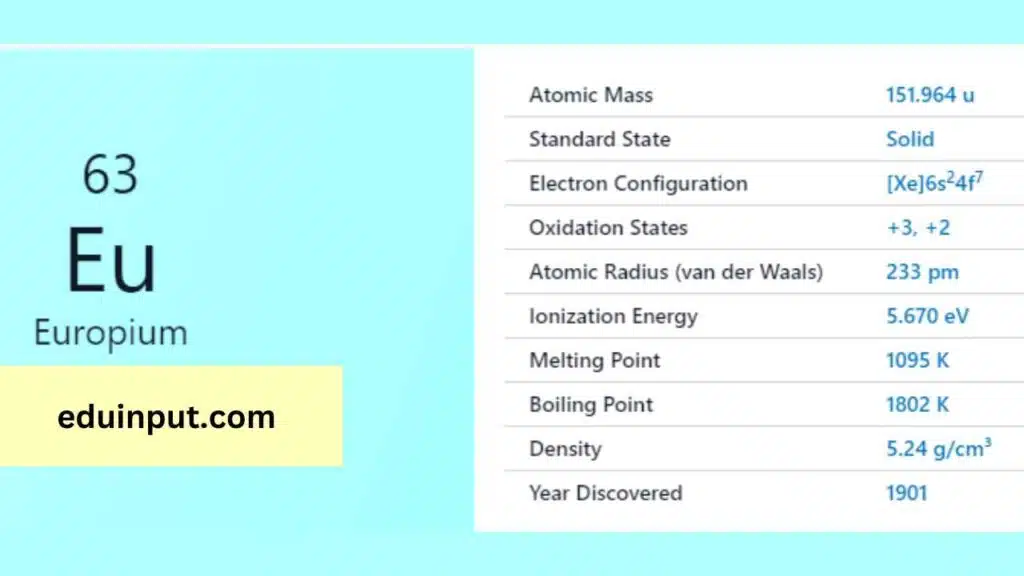Europium-Properties And Applications
Europium is a rare earth metal with the atomic number 63 and the symbol Eu. It was discovered in 1896 by a French chemist Eugène-Antole Demarçay. It is found in minerals such as monazite and xenotime and is the most reactive of all the rare earth metals.

| Property | Value |
| Name | Europium |
| Symbol | Eu |
| Atomic number | 63 |
| Relative atomic mass (Ar) | 151.964 g |
| Standard state | Solid at 298 K |
| Appearance | Silvery white |
| Classification | Metallic |
| Group in periodic table | |
| Group name | Lanthanoid |
| Block in the periodic table | 6 (lanthanoid) |
| Block in periodic table | f |
| Shell structure | 2.8.18.25.8.2 |
| CAS Registry | 7440-53-1 |
Physical Properties
Europium is a silvery-white metal with a melting point of 822 °C and a boiling point of 1597 °C. It is a soft metal and can be easily cut with a knife. Europium is paramagnetic and has two allotropes.
Chemical Properties
Europium has a very high reactivity and is highly reactive with water, oxygen, and acids. It is the most reactive rare earth metal and is therefore only found in compounds in nature. Europium can form both +2 and +3 oxidation states and can also form complex compounds.
Facts
- Europium is used as a red phosphor in television screens and fluorescent lamps.
- It is also used in nuclear reactors as a neutron absorber.
- Europium is the most reactive rare earth metal.
Applications
- Red phosphor in television screens and fluorescent lamps
- Neutron absorber in nuclear reactors
- Production of nuclear control rods
- Glass and ceramic colorant
Europium is a highly reactive rare earth metal that is used in a variety of applications, such as in television screens, fluorescent lamps, and nuclear reactors. Its unique chemical properties make it a valuable resource in a variety of industries.







Leave a Reply